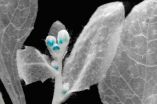(Press-News.org) Misaligned research, medical challenges and harsh economics are thwarting efforts to slow the destructive course of Alzheimer's disease in the United States, according to a trio of nationally regarded Alzheimer's researchers writing a "Perspective" in Thursday's (Jan. 27) issue of the journal Neuron.
The foremost obstacle is that the most promising preventive strategies are being tested in patients firmly in the grip of Alzheimer's disease — the ones least likely to be helped.
The approach would be similar to testing statins — drugs widely used to prevent heart disease — in patients who are already in cardiac arrest, according to Dr. Todd Golde, director of the UF College of Medicine's Center for Translational Research in Neurodegenerative Disease.
With Dr. Edward Koo of the University of California, San Diego, and Dr. Lon S. Schneider of the Keck School of Medicine at the University of Southern California, Golde pointed to a lack of alignment between studies in human volunteers, which focus on treatment, and preclinical laboratory studies, which are aimed at prevention.
"If we do the right types of clinical studies, we have the ability to move toward prevention, which would have a huge impact on this disease," said Golde, a professor in the department of neuroscience at UF's McKnight Brain Institute. "But we have to overcome our 'prevention versus treatment' dilemma. We already have more than 5 million people affected, and half of people in nursing homes, or more, have Alzheimer's disease. As society ages, we are just going to continue to see Alzheimer's drain the economy and the quality of human life."
Without medical breakthroughs, a projected 7.7 million patients in the U.S. will have Alzheimer's by 2030, according to the Alzheimer's Association. That number will grow to between 11 million and 16 million by 2050.
Researchers say solving the treatment-prevention problem will require the development of biomarkers — substances in the body that point to a disease — to identify patients before they show the symptoms associated with Alzheimer's. With biomarkers, it may be possible to test Alzheimer's drugs in pre-symptomatic volunteers.
"The dilemma is, can you treat people as if they have Alzheimer's if they do not?" said Koo, co-director of the Shiley-Marcos Alzheimer's Disease Research Center at UC San Diego. "That's the catch-22."
Most proposed Alzheimer's disease therapies target so-called "brain plaques" — proteins that clog the spaces between brain cells. Experimental models suggest that therapies targeting these proteins, known as amyloid beta-peptide, may be effective.
Approximately 90 experimental therapies intended to slow or stop the progression of the disease are under way, many of them targeting Alzheimer's hallmark brain plaques, according to the Alzheimer's Association. The problem is the strategies are likely to be much less effective when tested in patients who are already experiencing confusion, memory loss or personality changes.
But simply placing more emphasis on prevention has its own complications, the researchers say. To date, no drug candidates have been found to be effective at prevention or suitably safe enough for a patient to take for a lifetime.
And even if such a drug were found, clinical testing would take well more than a decade and cost pharmaceutical companies millions of dollars. If the drug were successful — and there is no guarantee — the company's patent would expire before it had a chance to recover its expenses.
"It is important to find ways to ensure that the commercial sector will invest in prevention trials that may take 10 years or more to complete," Koo said.
The authors said they are not the first to point out misalignment between clinical and preclinical studies, or summarize current therapeutics, or critique how trials are conducted.
But by presenting the issues in a comprehensive way, they hope to spur discussion among members of the research community, pharmaceutical companies and regulatory bodies to address the challenges.
"What we've done is collect those points and suggest what has to happen to help patients who are suffering from this awful disease," Golde said.
INFORMATION: END
Boulder, CO, USA - LITHOSPHERE articles published in the February issue cover present-day movements and past deformation in El Salvador, Honduras, and Nicaragua; the tectonics of the northern Owens Valley in California, USA; the paleoseismology of the eastern North Anatolian fault at Yaylabeli, Turkey; exhumation in the southeastern Canadian Cordillera; and the diverse tectonic history of Tunisia.
Keywords: Gulf of Fonseca, Central America; Owens Valley, California; North Anatolian fault, Yaylabeli, Turkey, Canadian Cordillera, Canadian Shield, Tunisia.
Highlights ...
A new study into Staphylococcus aureus, the bacterium which is responsible for severe chronic infections worldwide, reveals how bacteria have developed a strategy of hiding within host cells to escape the immune system as well as many antibacterial treatments. The research, published by EMBO Molecular Medicine, demonstrates how 'phenotype switching' enables bacteria to adapt to their environmental conditions, lie dormant inside host cells and become a reservoir for relapsing infections.
Staphylococcus aureus is a major human pathogen which can be carried by up to 70% ...
Some animals produce more offspring than others do. Hormones like prolactin and corticosterone can exercise a crucial influence on the behaviour of birds in the breeding season and therefore on their reproductive success. Scientists from the Max Planck Institute for Ornithology in Radolfzell and their colleagues at the universities of Princeton and Edinburgh have now demonstrated that hormone levels not only play a key role during the breeding season, but already dictate, long in advance, how many eggs a breeding pair will lay, when they will lay them and how often. An ...
Plants producing flower pollen must not leave anything to chance. The model plant thale cress (Arabidopsis), for instance, uses three signalling pathways in concert with partially overlapping functions. The yield becomes the greatest when all three processes are active; however, two are sufficient to form an acceptable quantity of flower pollen. In a new study, Peter Huijser and his colleagues at the Max Planck Institute for Plant Breeding Research in Cologne offer fascinating insights into the rich range of proteins that are used by seed plants to develop stamens and form ...
As many as ten to 20 per cent of nurses and nursing students may have substance abuse and addiction problems, but the key to tackling this difficult issue - and protecting public safety - is support and treatment, not punishment. That is the key message in a paper in the February issue of the Journal of Clinical Nursing.
Researchers have recommended six key points that could be built into alternative-to-dismissal (ATD) strategies after reviewing the latest research and professional guidance from countries such as the USA, Canada, New Zealand, Australia and the UK.
They ...
The temperature of water situated in the subtropical Atlantic experienced a drop of 0.15ºC between 1998 and 2006. This has been revealed by a study led by the IEO (Spanish Oceanography Institute) which suggests that circulation caused by wind could be responsible for this "unusual" behaviour.
Whilst the water temperature in this area, situated along the 24.5º north parallel, from the African coast to the Caribbean, rose by 0.27ºC between 1957 and 1998, researchers have recorded a drop of 0.15ºC in the same area between 1998 and 2006.
"In the ocean there are very ...
'Difficult' patient-clinician encounters have a negative impact on patients' health outcomes in the short-term, according to a new study by Sheri Hinchey from the Tripler Army Medical Centre in Honolulu and Jeffrey Jackson from the Zablocki VA Medical Centre in Milwaukee. Their findings1 show that nearly 18 percent of patients are perceived as difficult by their physicians and are less likely to trust or be satisfied with their doctor. Importantly, these patients are also more likely to report worse symptoms two weeks after the consultation. Hinchey and Jackson's work has ...
For 60 years, scientists have puzzled over the possibility of a hepatic osmoreceptor that influences blood pressure regulation. Now, researchers of the Max Delbrück Center for Molecular Medicine (MDC) Berlin-Buch, the Experimental and Clinical Research Center (ECRC) of the MDC and Charité and the Hannover Medical School (MHH) appear to have made a breakthrough discovery. Dr. Stefan Lechner and Professor Gary R. Lewin (both of MDC), Professor Friedrich C. Luft (ECRC) and Professor Jens Jordan (ECRC; now MHH) have discovered a new group of sensory neurons in the mouse liver ...
Tel Aviv — The most common connective tissue cell in animals is the fibroblast, which plays an important role in healing wounds. But Dr. Neta Erez of Tel Aviv University's Sackler Faculty of Medicine has now demonstrated that fibroblasts can also do a body great harm, helping to "recruit" immune cells for tumor growth.
At the onset of a tumor's creation when cancer cell proliferation is beginning, fibroblasts rush to the scene to aid in healing. However, Dr. Erez's research shows that these ordinarily helpful cells can actually be turned against the body, enhancing ...
The operating system (OS) is the backbone of your computer. If the OS is compromised, attackers can take over your computer – or crash it. Now researchers at North Carolina State University have developed an efficient system that utilizes hardware and software to restore an OS if it is attacked.
At issue are security attacks in which an outside party successfully compromises one computer application (such as a Web browser) and then uses that application to gain access to the OS. For example, the compromised application could submit a "system call" to the OS, effectively ...




